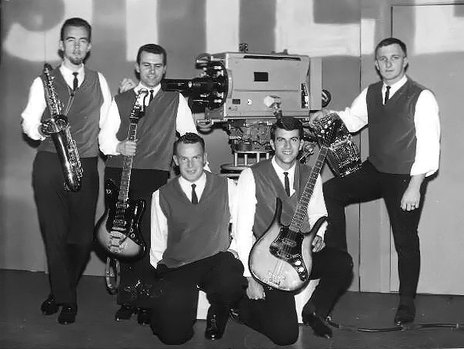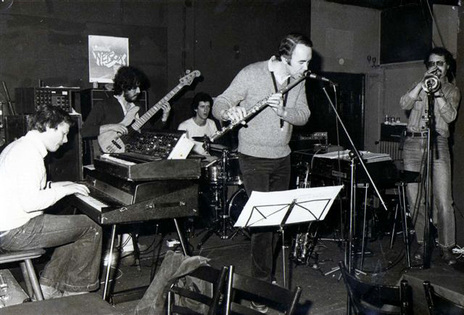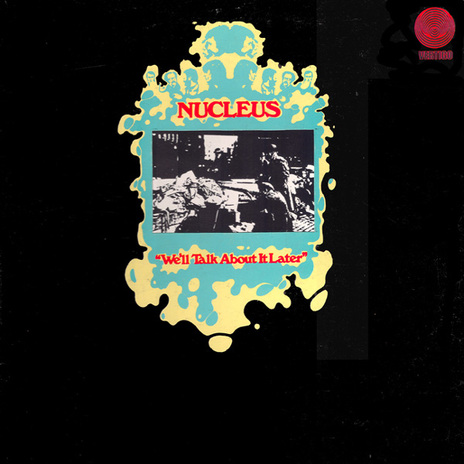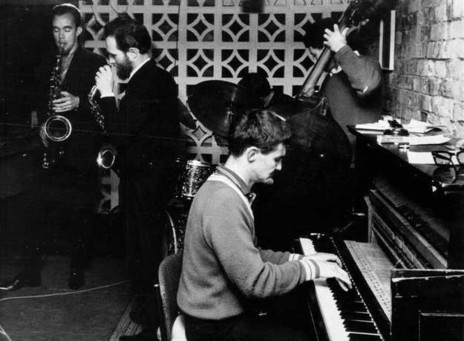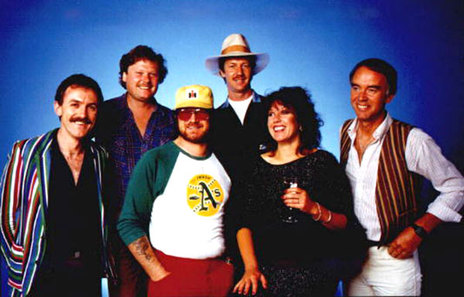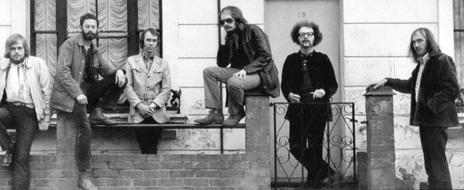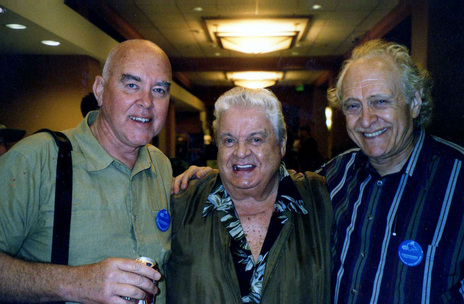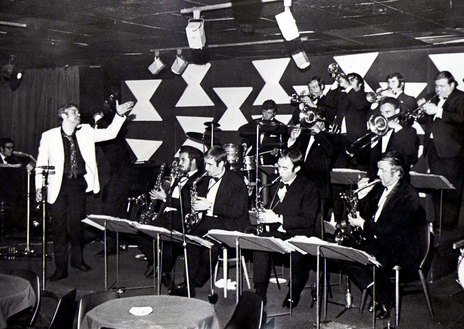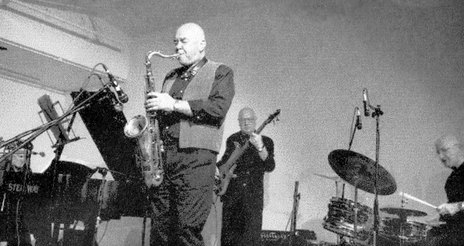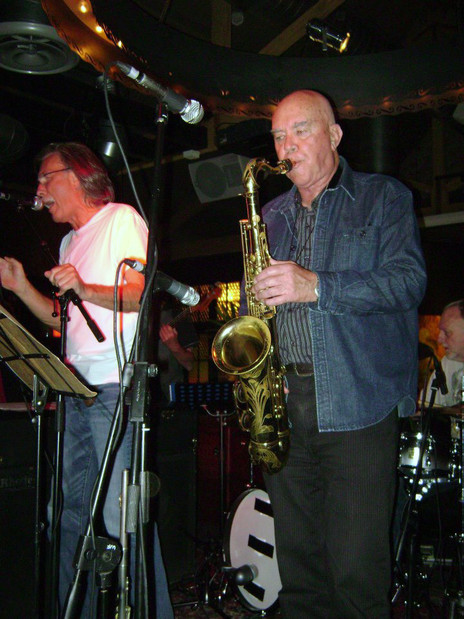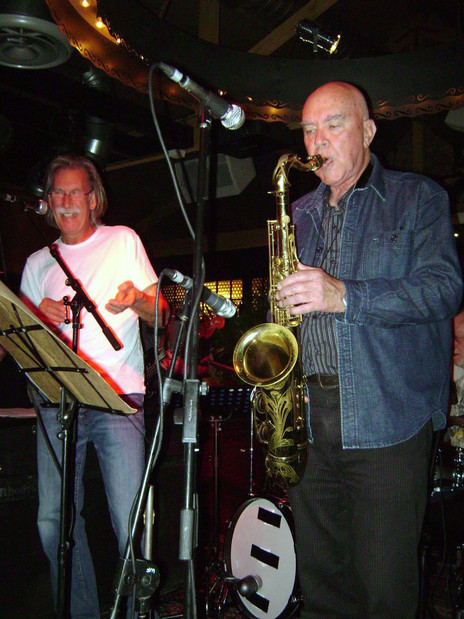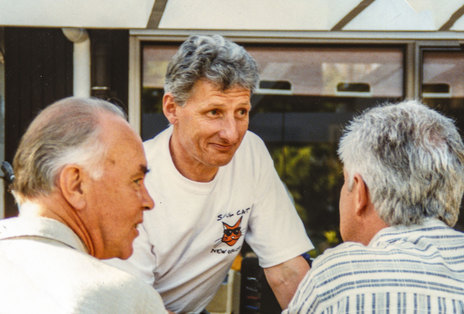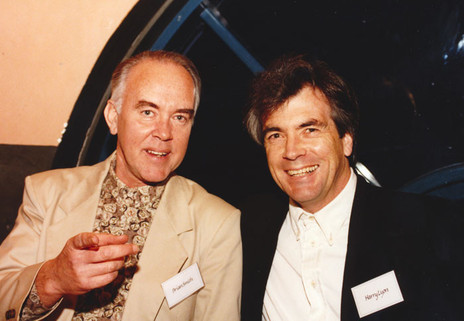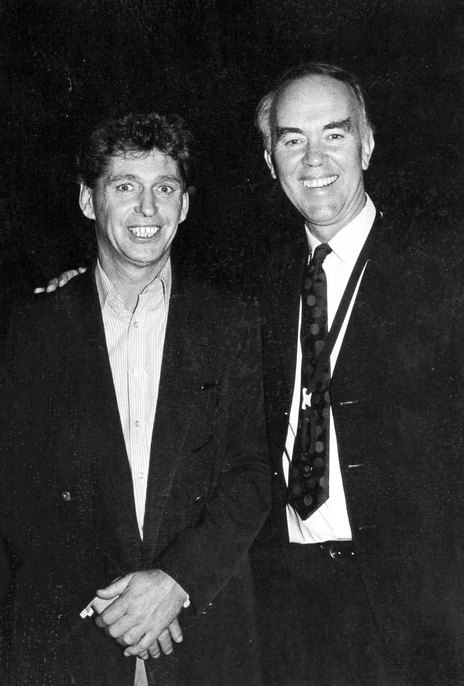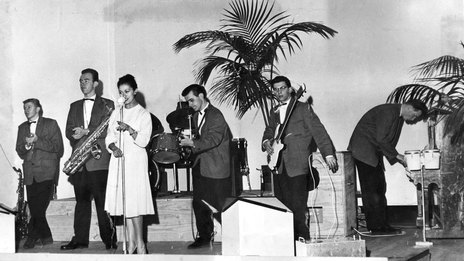Smith spent almost two years in Australia, including a six-month residency on the Gold Coast in a group of expatriate New Zealanders led by Paris, and a stint with the R’Jays, Australian rock and roll pioneer Dig Richards’ backing band. Mostly based in Sydney, he played with some of the great Australian jazzmen then emerging and lived for a time with influential American saxophonist Bob Gillett, who was soon to relocate to Auckland.
When Smith returned to Auckland in late 1961, Gillett had already made a name for himself and was at the cutting edge of a modern jazz scene. In a quintet that featured Gillett, drummer Tony Hopkins, bassist Neville Whitehead and pianist Mike Walker, Smith was part of the weekly Sunday afternoon jazz workshops at the Bali Hai Coffee Bar.
IN 1965-66 SMITH WAS A MEMBER OF BLUES INCORPORATED, LED BY ALEXIS KORNER.
In mid-1962 Bob Paris once again summoned Smith to join a backing band for a national tour backing Bill & Boyd, Lou and Simon, and others. It was the first of many such tours and by the time Smith ventured to England in 1964, he was acknowledged as an accomplished musician. Just how accomplished was to become apparent in the forthcoming years.
During his time overseas, 1964 to 1982, Brian Smith played with some of the top names in British jazz, from such legendary figures as Tubby Hayes and Humphrey Lyttleton, with whom he toured and recorded, to up-and-comers like John McLaughlin. His exposure as a regular at Ronnie Scott’s, the famed London jazz club, led to many recording sessions, concerts and national tours backing the likes of Annie Ross, Donovan, Eartha Kitt, the Four Tops, Gladys Knight & the Pips, Lulu, The Small Faces and T-Bone Walker.
In 1965-66 Smith was a member of Blues Incorporated, led by the founding father of British blues, Alexis Korner. The long-serving group had launched the careers of Long John Baldry, Ginger Baker, Graham Bond, Jack Bruce, Cyril Davies, Charlie Watts and others.
Following his departure from Blues Incorporated, Smith returned to regular gigs at Ronnie Scott’s and remained on call for occasional performances and tours with Tubby Hayes and Humphrey Lyttleton.
In 1968-69 he spent six months with the Alan Price Band. And then in late 1969 he was shoulder-tapped by two prominent jazz musicians – Ian Carr and Canadian Maynard Ferguson, who had recently settled in England. Smith was on call for Ferguson’s sporadic tours over the next six years, playing on two albums and basing himself in the US when Ferguson returned to North America in 1973.
Smith’s association with Carr lasted even longer. The collective which Carr formed in late 1969, of which Smith was a founder-member, was Nucleus, Britain’s pre-eminent jazz-rock group. In July 1970 Nucleus appeared at the Montreaux Jazz Festival in Switzerland, taking out first prize in the European Band competition. The prize was an appearance at the USA’s premier jazz event, the Newport Jazz Festival.
Smith remained with Nucleus until 1982, playing on 12 albums. Other notables to play with the group included guitarist Chris Spedding and keyboardist Geoff Castle; and Smith’s standing within the group saw several New Zealand expatriates join the ranks, including Billy Kristian and Dave MacRae.
Nucleus was never a full-time unit and Smith also played on numerous recording sessions and in backing bands. He was Georgie Fame’s first-choice saxophonist during the 1970s, played a Royal Command Performance behind Dusty Springfield, and even played on Bing Crosby’s final album. In 1977 he joined Dave MacRae, Joy Yates and Billy Kristian in Pacific Eardrum. He returned to New Zealand in 1982.
in 1990, SMITH enjoyed the biggest commercial success of his career with ‘Moonlight Sax’.
Given his pedigree, Brian Smith was soon in great demand at home. He recorded three albums with Space Case, featuring Frank Gibson Jr, Murray McNabb and Bruce Lynch, as well as his own Brian Smith Quartet, which won Best Jazz Album at the 1984 NZ Music Awards for Southern Excursion. He has appeared on several film soundtracks, played with numerous backing bands, and on recordings by Phil Broadhurst, Jacqui Fitzgerald, Shona Laing, Midge Marsden, Malcolm McNeill, Howard Morrison and others.
At the end of the 1980s Brian Smith had settled into a comfortable existence, rarely without a gig but without the acclaim which the larger British scene offered. And then in 1990, aged 51, he enjoyed the biggest commercial success of his career with the double-platinum Moonlight Sax, which topped the NZ album charts. Directly aimed at the MOR market, as opposed to the jazz audience, the album was followed by 1991’s follow-up Moonlight Sax 2, which reached No.2 on the charts. Subsequent releases have eschewed mainstream instrumentals in favour of his beloved jazz.
Brian Smith still regularly performs and records with New Zealand’s top jazz, pop and rock musicians. He remains a regular fixture at New Zealand jazz festivals, and holds down several teaching posts, including the New Zealand School of Music.
--
In 2022 Brian Smith announced his retirement from live performance, and this was marked by a tribute programme on RNZ Concert, with Nick Tipping playing music from across his career.
